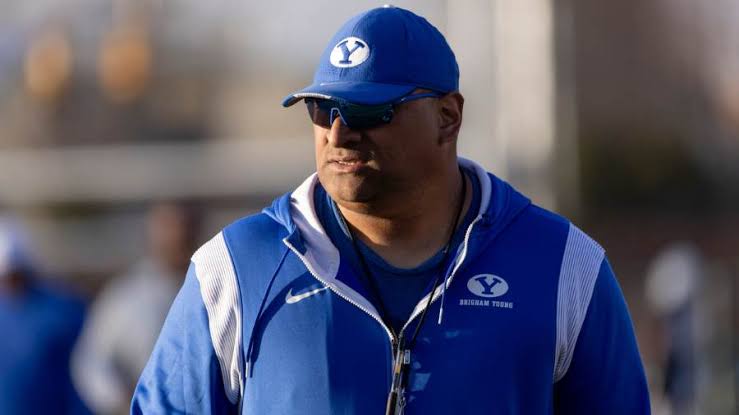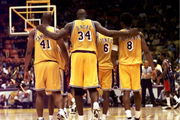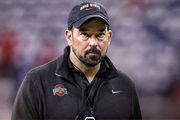

In 2024, the Cougars football team wrapped up an impressive 11–2 season, clinching a spot in the Big 12 title game and handing Colorado a 36–14 beating in the Alamo Bowl. Jack Retzlaff was dealing, and the defense was forcing turnovers left and right. But the real spark wasn’t just in the touchdowns or big plays. It was Kalani Sitake’s behind-the-scenes strategy. And a former Cougar recently pulled back the curtain.
Watch What’s Trending Now!
Former BYU long snapper turned UCF transfer Dalton Riggs isn’t one to keep secrets anymore. On the June 16 episode of the UCFast Cast podcast with UCF running backs Myles Montgomery and Jaden Nixon, Riggs spilled the beans on one of the wildest—and most talked-about—plays of the 2024 season: BYU’s double-snap fake field goal against UCF.
“Listen, I ain’t got to keep any secrets on it,” Riggs said. “But we had more fakes than I think anything in the world. Like we had—for almost every game we probably had at least three or four punt, field goal fakes based on the team.”
ADVERTISEMENT
In Week 8, BYU stunned the Knights with a daring 4th-and-5 call from the UCF 28-yard line. Holder Sam Vander Haar snapped it backward through his legs to kicker Will Ferrin, who then sprinted for an 8-yard gain and a fresh set of downs. It looked like chaos—but it was pure art.
That creativity helped extend BYU’s lead and secure a 37–24 win, keeping their record spotless at 8–0. And that fake? It earned the Pop-Tarts Crazy Good Play of the Week. ESPN’s David Pollack called it a play “you draw up and never use unless you’re [BYU]… perfect execution.” Even Max Olson gave props: “one of the most beautiful fake field goals of the season.”
Riggs remembered it vividly. “It wasn’t a check call. It was a call. Like, we are running it. And I was like, alright, here we go.” What made it more stunning was how shaky it looked in practice. “I thought like when we called that, I was sitting there, I was like, ‘Look, it’s a little close in the game to be calling something like this,’ you know what I mean? Like this is—man, this could change the game.”
ADVERTISEMENT
BYU ran the most outrageous fake field goal… a DOUBLE SNAP pic.twitter.com/VylW82KnFR
— Unnecessary Roughness (@UnnecRoughness) October 26, 2024
ADVERTISEMENT
After the play, UCF still held BYU to a field goal, but the fake had already done its damage. Even Myles Montgomery had to laugh about it and gave props to Kalani Sitake: “That’s kinda how it feels when like you’re on offense and coach calls a play that’s kinda been shaky in practice all week and somehow actually goes for six.”
Dalton Riggs has since transferred to UCF, following in the footsteps of his brother Austin, who left BYU for Rutgers. As a new chapter begins for Riggs, the door might be quietly closing for Kalani Sitake’s future ambitions. His playbook may be elite, but his next move just got complicated.
ADVERTISEMENT
Kalani Sitake’s BYU vision faces heat as $13M headline sparks culture check
While the rest of college football was sliding into the offseason, BYU was getting hit with something much bigger than a spring game hangover. On paper, it looked like a win—final approval of the $2.8 billion House v. NCAA settlement. But under the surface? It stirred up a whole new problem for Kalani Sitake.
Let’s start with the facts: the Cougars are about to get paid. Starting in 2025, BYU will bank an additional $13 million annually from the Big 12’s revamped media rights deal, courtesy of ESPN and FOX. That’s on top of the $20.5 million they were already raking in. It’s a new era for BYU. But Sitake’s biggest challenge isn’t what’s in the bank—it’s what’s in the blueprint.
Top Stories
Travis Kelce Announces New Career Move Away From Chiefs After Confirming Retirement Stance

Tragic Death of Shaq & Kobe’s Ex-Teammate Linked to Fatal Mistake, Authorities Confirm

Jerry Jones Announces Retirement Plans as Dallas Cowboys Owner Makes Triple Decision on Coaching Hiring

Josh Allen Announces Tough News for Bills Amid Sean McDermott’s Concerns Ahead of Broncos Game

Wyndham Clark Doesn’t Hold Back as Brooks Koepka Return Deepens PGA Tour Tension

Ohio State Captain Makes NFL Draft Announcement as Ryan Day Eyes Multiple Defensive Stars in Transfer Portal

BYU is different. Always has been. Sitake has made it work, guiding the program to consistent success, including last year’s impressive 11–2 run. But BYU’s success has always come with a caveat: they play by a different set of rules. Not just on the field, but off it. That reality is starting to press back.
ADVERTISEMENT
On The R&J Show, Joe DeLeone and Blake Ruffino didn’t sugarcoat it. “BYU ain’t going to recruit like that though,” Ruffino said. “They ain’t going to. And ain’t nobody, with all due respect… going to that kind of a religious school. It’s different than going to Notre Dame.” DeLeone doubles down. “There’s curfews. I mean, like 9:00 curfews on weekdays,” he said. “Joe, you played college football. I mean, study hall for freshmen is done at 9:00. Yeah, meetings would be done at 10. I mean, also on top of that, guys want to go out.”
The point wasn’t to mock BYU’s standards—it was to spotlight the recruiting dilemma that’s now becoming unavoidable. In a world where NIL cash, flashy brands, and freedom of movement rule the day, BYU’s spiritual structure can feel out of sync. It’s not just old-school—it’s its own school. Still, the Cougars aren’t trying to compete by changing who they are. If anything, they’re leaning into it harder. “We don’t see athletics as a time to magnify our differences,” BYU’s public mission states. “We compete as a tool to restore unity.” That’s not just a quote—it’s their operating system.
But as the money flows in and the competition stiffens, Sitake has to thread a needle few programs ever attempt. Can BYU keep its moral compass straight and still navigate the high-stakes, high-dollar college football maze? With $558 million already shared across the Big 12 and more to come, the margin for error is shrinking.
ADVERTISEMENT
ADVERTISEMENT
ADVERTISEMENT
ADVERTISEMENT

